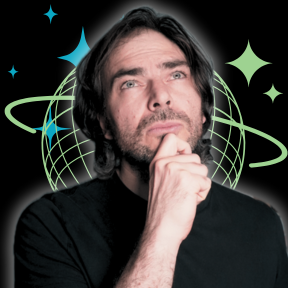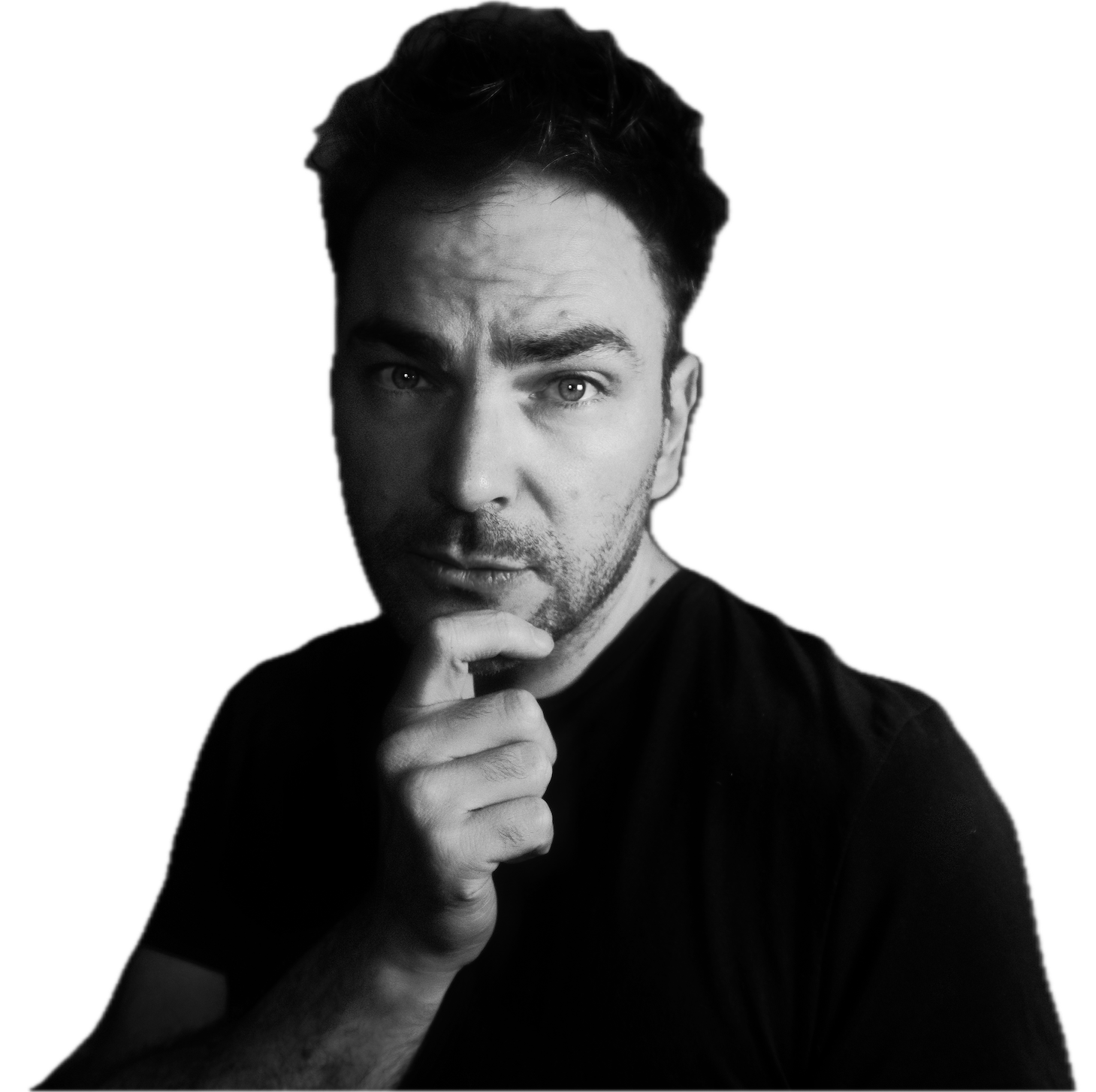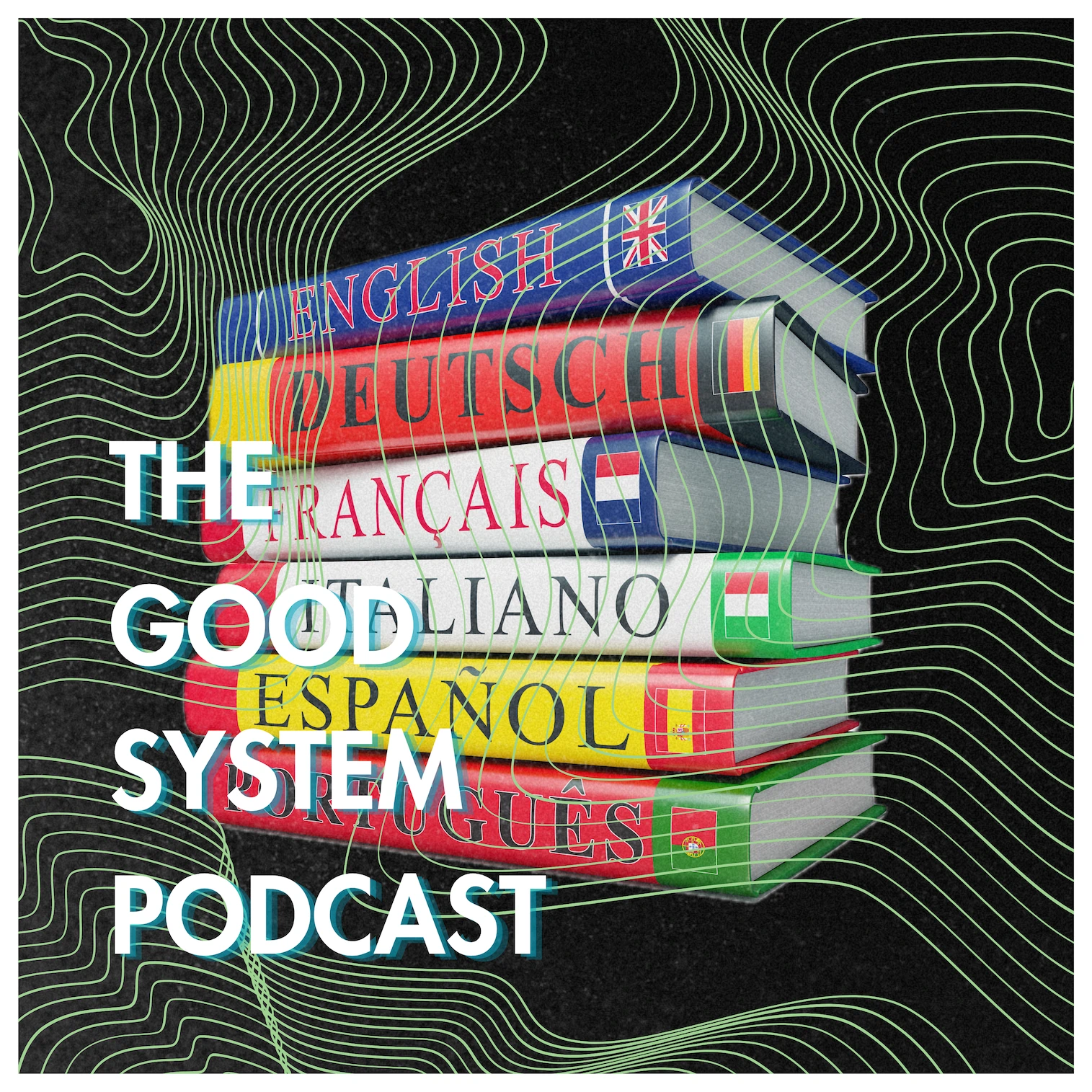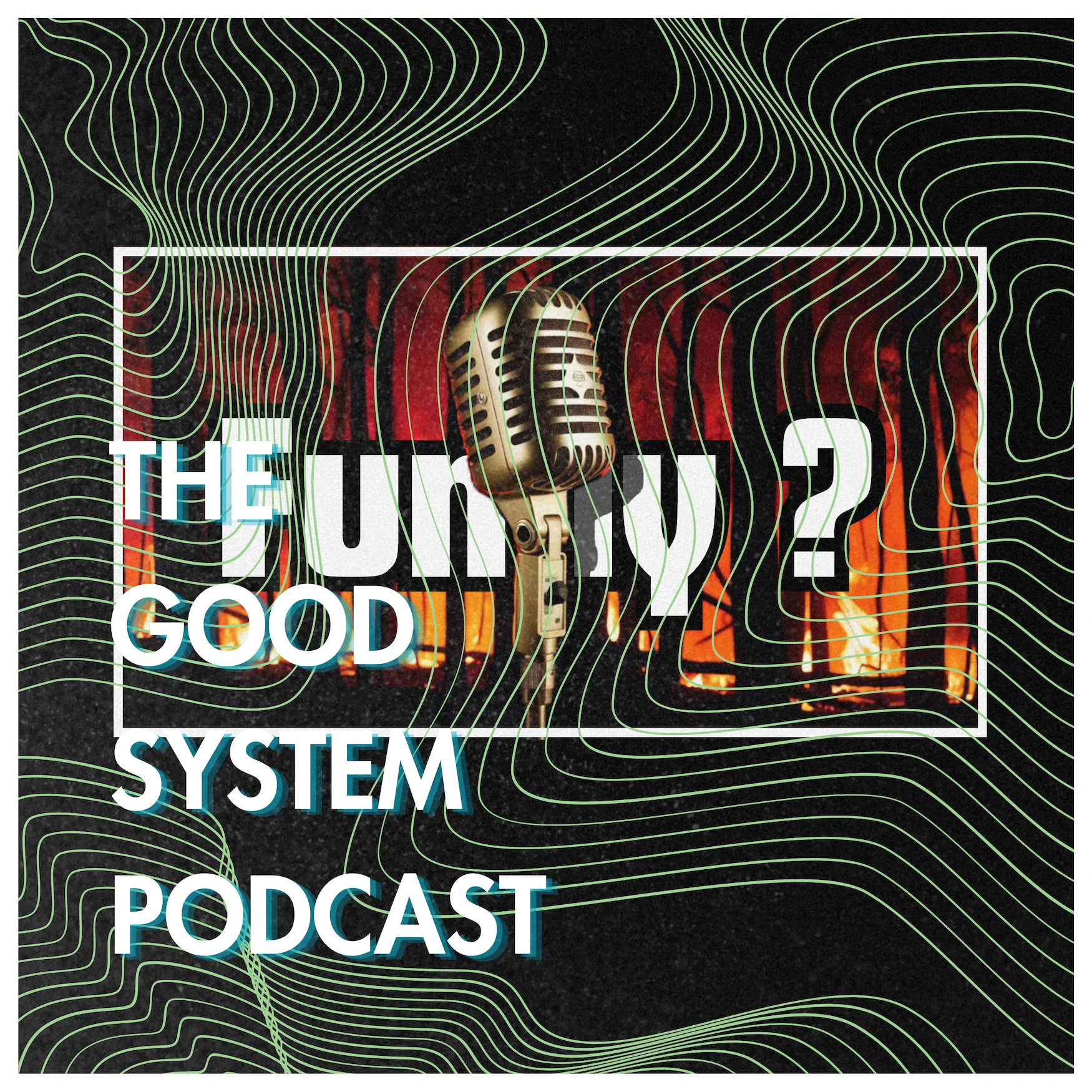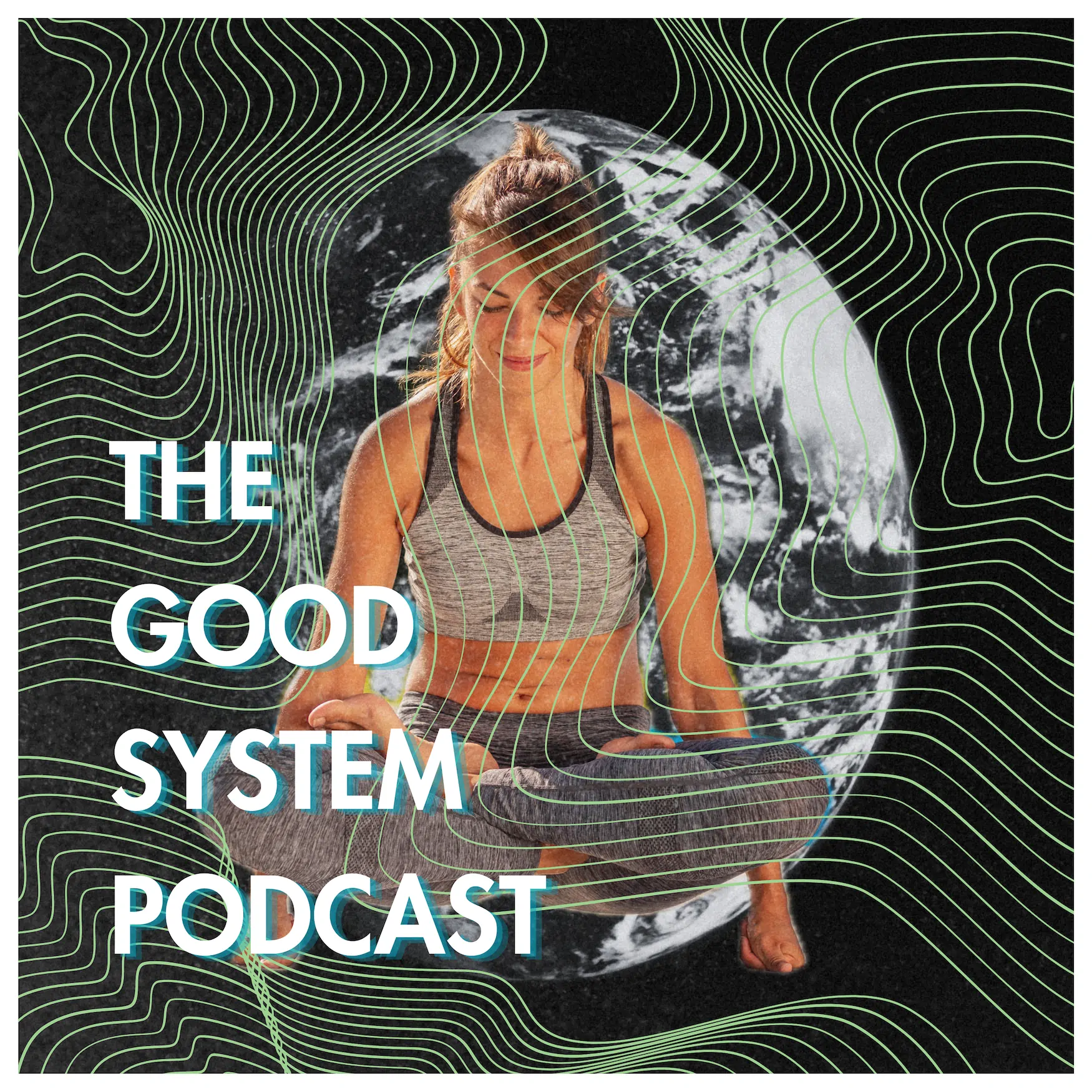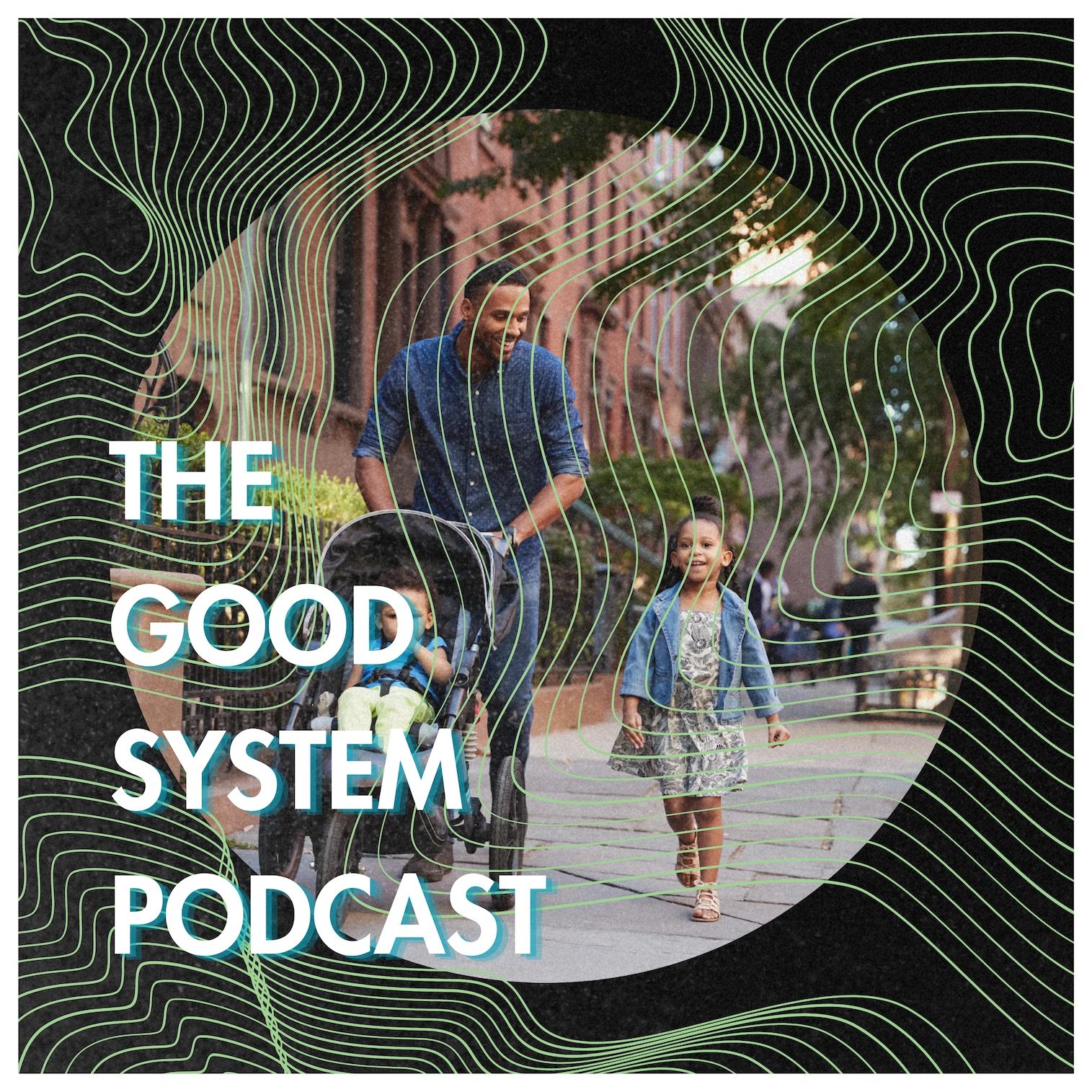Episode Transcript
[00:00:00] So there I was, sitting in a Turkish barbershop in my hometown, Vienna, trying to explain to the barber how I wanted my hair cut.
[00:00:12] Neither English nor German was working.
[00:00:15] He spoke Turkish, maybe some broken German. And I. Well, I speak whatever this is.
[00:00:23] So I resorted to the universal language of disparate gesturing, pointing at my head like I was conducting an invisible orchestra.
[00:00:33] Twenty minutes later, I walked out looking like I'd lost a fight with a lawnmower.
[00:00:41] And that's when it hit me. What if we're approaching this whole global communication thing completely backwards?
[00:00:51] Hello, and welcome. I am Ian the Bay, and this is the Good System, the podcast where we build the vision of a good future.
[00:00:59] You know, the kind of future where getting a haircut doesn't require an interpretive dance degree.
[00:01:06] Today, we're diving deep into something that affects every single one of us every single day.
[00:01:13] Language.
[00:01:15] And before you think, oh, great, another linguistics lecture like you always get on podcasts, stick with me, because we are not just talking about grammar rules here.
[00:01:29] We're talking about power, oppression, connection, and why the future might need its own tongue. Because if a simple haircut can turn into a communication disaster in the heart of multicultural Vienna, imagine what's happening in boardrooms, hospitals, and diplomatic meetings around the world.
[00:01:53] This episode is based on a blog article I wrote some weeks ago, and honestly, after rereading it, I'm impressed. I managed to string together coherent sentences in English, which, spoiler alert, isn't even my first language. But we'll get to that delicious irony in just a moment. Here's a perfect example of how language learning actually works versus how we think it.
[00:02:24] I learned English as a kid by watching MTV with my siblings. Yeah, back when MTV actually played music videos. I'm that old.
[00:02:35] Kurt Cobain and Alanis Morissette were my English teachers, and honestly, they did a pretty good job. I was picking up phrases, understanding context, absorbing the rhythm of the language.
[00:02:48] Then I went to school to properly learn English, and you know what happened?
[00:02:54] I completely unlearned it. The formal education system took this natural, intuitive understanding I had developed and replaced it with grammar rules, conjugation tables, and the kind of rigged structure that sucks the life out of any language.
[00:03:13] It took me years to recover from my English education and get back to actually communicating instead of just following rules. And this, folks, is exactly why education reform is so crucial. We are literally teaching people out of abilities they naturally develop. And if you want to hear me rant about this in much more detail, check out my episode about education, where I Dive deep into how our current system is fundamentally broken. The link is in the show notes.
[00:03:49] But the point is language is alive. It's organic. It's meant to connect people, not to be dissected in a classroom like a dead frog.
[00:03:59] Let's address the elephant in the room, or should I say the English in the podcast?
[00:04:05] Here I am, a non native English speaker hosting a show about building a better world in English.
[00:04:14] It's like being a vegetarian chef famous for the burger recipes.
[00:04:19] The irony is so thick you could cut it with a linguistic knife.
[00:04:24] But here's the thing, and this is going to sound like I'm making excuses for my questionable pronounces, for my questionable pronunciation of suggestion. It's suggestion, not suggestion.
[00:04:41] Apparently I'm stuck in the same trap as everyone else. English has become the digital lingua franca, whether we like it or not.
[00:04:51] When I started this podcast, I had a choice. Reach 50 people who speak my native language perfectly or reach 500 people who speak English as their second language. Just like me.
[00:05:06] We are all stumbling through this together, mispronouncing Colonel and wondering why. Tough cuff. And through downtime, English is like that friend everyone has. Useful to know, but makes absolutely no sense when you really think about it.
[00:05:27] And that's exactly why we need to talk about this. Because the language we use to communicate globally isn't neutral. It comes with baggage, heavy colonial baggage that we've all been carrying around without really examining what's inside. But here's an extra layer of linguistic weirdness. When I speak English with my German accent, the sound of oppression somehow gets even worse.
[00:05:54] There's nothing quite like trying to make a point about global equity while sounding like the character from a World War II movie. It's like the universe has a very dark sense of humor about historical irony.
[00:06:08] Let's get real for a minute. English didn't become the global language because it's particularly beautiful or logical.
[00:06:17] Have you seen the spelling system?
[00:06:19] It became dominant because of two British colonization and American cultural imperialism.
[00:06:27] That's not exactly a feel good origin story.
[00:06:32] Think about it. Every time we default to English in international settings, we are essentially saying, hey, remember the time these folks conquered half the world and then their cousins across the pond dominated global media and tech. Yeah, let's keep using the language for everything important.
[00:06:51] It's like if McDonald's became the only restaurant chain in in the world, not because they make the best food, but because they had the biggest military and now we are all eating Big Macs and pretending it's Fine, because everyone knows what a Big Mac is.
[00:07:11] But here's where this gets really twisted. Native English speakers get a massive unearned advantage in the system.
[00:07:20] They show up to international conferences, job interviews, academic discussions, and they're already playing on easy mode while the rest of us are struggling with Edwards effect or effect again.
[00:07:35] And before my English speaking listeners start feeling guilty, don't.
[00:07:40] You didn't choose to be born into linguistic privilege any more than I choose to be born into a linguistic struggle.
[00:07:49] But we can all choose what we do about it moving forward.
[00:07:53] Here's the thing though, it's not specifically about English being evil or anything. French used to be the diplomatic language of Europe, and guess what?
[00:08:04] That came with the same colonial baggage.
[00:08:07] Spanish dominates much of Latin America for the same historical reasons. The problem isn't the language itself. It's how languages become dominant through conquest rather than choice. If tomorrow everyone suddenly started speaking Mandarin for international business, we'd have the same issue, just with different colonial history attached.
[00:08:32] The pattern is what's broken, not the specific language that happens to be on top right now.
[00:08:39] So here's where things get interesting. And by interesting I mean potentially revolutionary.
[00:08:46] What if we could design a language from scratch? A language that doesn't carry the historical weight of conquest and colonization.
[00:08:55] A language built for equity, not empire. This isn't some sci fi fantasy. Constructed international auxiliary languages already exist. The most successful one is Esperanto. And yes, I'm about to butcher its pronunciation because that's my brand now.
[00:09:18] Saluton miestas Jan chia millernas Esperanton, which means hello, I am Ian and I am learning Esperanto. And honestly, the fact that you probably understood the general meaning even if you never heard Esperanto before, that's the point. It's designed to be learnable.
[00:09:40] Let's zoom out from Esperanto specifically and think bigger. Imagine a world where everyone learns the local language first, preserving all that beautiful cultural diversity, and then learns a universal second language that belongs to no one and everyone.
[00:10:01] But wait, there's a crucial piece we haven't discussed yet, and it might be the most important part of all.
[00:10:08] Now, before anyone starts panicking that I'm advocating for some dystopian monoculture where we all speak Robot Language 2.0, let me be crystal clear.
[00:10:21] The goal isn't to replace languages, it's to supplement them.
[00:10:28] Think of linguistic diversity like a massive global library.
[00:10:34] Each language is a unique book filled with ways of thinking, cultural knowledge, and perspectives that literally cannot be translated.
[00:10:45] When a language Dies, we lose an entire way of understanding the world.
[00:10:50] It's like burning books, except the books contain knowledge we haven't even discovered yet.
[00:10:58] Every language has metaphors or sayings that aren't translatable in another language because they were created because of specific local situations, culture and history.
[00:11:10] Like the people of Greenland have several words for snow, or a erke mitta kschisnen an bugle ankrokotuklossarken. Un os perfel an der seichtener bleacher boceni that no one outside Vienna understands. And maybe nobody would ever say.
[00:11:27] Now here's something that perfectly illustrates the hidden connections between languages.
[00:11:34] I'm what you might call a Latin guy. No, not Latin America. I mean the ancient dead language, Latin.
[00:11:43] I had to learn it in school, and let me tell you, I was absolutely terrible at it. My teacher probably still has nightmares about my attempts to conjugate verbs.
[00:11:55] But here is the fascinating. Years later, when I encounter a Romance language, whether it's Italian, Spanish, French or Portuguese, I can suddenly understand the bas.
[00:12:06] Not because I'm some linguistic genius, but because Latin is like the hidden skeleton inside all these languages.
[00:12:14] My terrible Latin education gave me a skeleton key to an entire language family.
[00:12:20] It's like having a really bad map of an ancient city, but then discovering that all the modern cities in the region still follow the same basic street layout.
[00:12:33] Suddenly my useless knowledge becomes surprisingly useful. Aqua becomes agua becomes O becomes water. And somewhere in my brain those dusty Latin lessons are, I told you this would be important someday.
[00:12:51] The universal second language isn't meant to be the poetic language, the language of love songs and ancient stories. It's the language of airports and international law, of global cooperation and emergency communication. It's the linguistic equivalent of a universal socket adapter. Practical, not beautiful, but absolutely essential.
[00:13:17] Every region would still teach their local languages. First, kids would still learn their grandmother's lullabies, their father's jokes, their culture's wordplay. But they'd also learn the global common tongue, the language that lets them talk to anyone, anywhere, about anything important.
[00:13:40] Let's get concrete for a moment, because I can already hear some of you.
[00:13:46] Jan, this sounds lovely in theory, but how would this actually work in practice?
[00:13:55] You're traveling and you land in any city or. Or better, you arrive by train anywhere in the world.
[00:14:02] The local signs are in the beautiful, complex local script, preserving cultural identity. But underneath, there's always a line in the universal language. Not replacing, just translating the essential information.
[00:14:20] You walk into a government building, a hospital, a school anywhere where clear communication is literally life or death. And everyone can communicate in both the local language and the universal one. No more medical emergencies lost in translation. No more legal documents that favor native speakers over whatever happens to be the dominant language.
[00:14:46] But here's the twist that makes this more than just a practical solution.
[00:14:52] Language shapes how we think A truly constructed international or global language, universal language, maybe designed for equity and clarity, could actually make us better at global cooperation. Imagine a language designed to minimize misunderstanding, to encourage precision in international law, to make diplomacy more effective.
[00:15:20] But there's one massive challenge we haven't addressed, and it's the reason this might never happen.
[00:15:30] Here's the uncomfortable the people who benefit most from the current linguistic status quo are also the people with the most power to prevent change.
[00:15:42] Why would English speaking countries support a move to a universally constructed language?
[00:15:49] They'd be giving up a massive strategic advantage. It's like being the house in Vegas and voluntarily making the games fair.
[00:15:59] And it's not just governments. Think about all the English language media companies, educational institutions, publishing houses. There's an entire economy built around English dominance.
[00:16:12] Changing the global language is isn't just a cultural shift, it's an economic earthquake.
[00:16:19] But did you know that German could be the dominating language of the world? No, not in an alternate history where the Nazis won the war. The decision was made more than a century before that. And it's obics of one man, Frederick Muhlenberg, or as he would have called himself, Frederick 1794, the House of Representatives voted if German or English should be the official language of the usa.
[00:16:51] Mallenberg, of German origin, voted against it. And so by one vote, English was elected as official language.
[00:17:02] Of course, this is an urban legend that is told in German speaking countries.
[00:17:07] The good system, the podcast that spreads conspiracy theories now, all for the audience.
[00:17:13] But here's where it gets hopeful. And yes, I'm no hopeful isn't usually my default setting.
[00:17:19] The generation coming up now, the digital natives, they are already creating their own linguistic shortcuts. Internet slang crosses language barriers. Memes translate emotions faster than dictionaries. They're not waiting for institutions to catch up. Maybe the revolution won't come from the top down. Maybe it will emerge from the bottom up, one mispronounced meme at a time.
[00:17:48] Let's talk about something that might seem abstract but is actually deeply practical. The symbolic power of language.
[00:17:57] Right now, when we gather for international conferences, sign global treaties, or try to address planetary challenges like climate change, we do it in English. That sends a message. This is whose world we are operating in. These are whose rules we are following.
[00:18:15] A universal constructed language would send a completely different message.
[00:18:21] This belongs to all of us. We built this together.
[00:18:27] No one's grandmother has an advantage here.
[00:18:31] Think about how different it would feel to negotiate climate action in a language that was designed for clarity and cooperation, rather than one that evolved from the language of the people who literally invented the Industrial Revolution.
[00:18:47] Languages aren't just tools for communication.
[00:18:50] They are symbols of power, identity and belonging.
[00:18:55] A truly universal language could be a symbol of our shared humanity rather than our historical divisions.
[00:19:05] So what would it actually take to make this happen?
[00:19:09] How do you get 8 billion people to agree on anything, let alone something as personal as language? First, it doesn't have to happen overnight. We could start with specific domains like international law, emergency services, global scientific communication, and so on. Build proof of concept, show that it works. Second, it has to be genuinely.
[00:19:40] Second, it has to be genuinely better, not just different. The constructed language would need to be easier to learn than English. More logical, more inclusive. It needs to solve real problems that people actually experience.
[00:19:57] It would be so much easier for people to integrate and orientate in a new country when they immediately understand the basics. And third, and this is crucial, it has to come from genuine global collaboration, not from one country, one institution, one tech company. It has to be built the way we want the future to be. Governed together, transparently, equitably.
[00:20:25] And let me be brutally honest for a moment, because that's what we do here on the good system.
[00:20:32] The chances of this actually happening in our lifetimes pretty slim. But I'm here to provide a vision, not hard realities.
[00:20:41] Changing global language patterns is like trying to redirect a river with a teaspoon. It's possible in theory, but it requires more coordination and political will than humans have historically been able to muster. Plus, there's the chicken and egg problem. People will only learn a universal language if other people are already using it.
[00:21:07] But other people will only start using it if people are already learning it.
[00:21:15] How do you bootstrap global adoption of anything?
[00:21:19] But here's the thing, and this is why I keep doing this podcast, despite my questionable English pronunciation.
[00:21:29] Just because something is unlikely doesn't mean it's not worth working toward.
[00:21:36] The conversations we have today shape the possibilities of tomorrow.
[00:21:42] Every massive change in human history started with people talking about impossible things. Democracy was impossible until it wasn't. Human rights were impossible until they weren't. Global Internet connection was impossible until it wasn't. Maybe a universal second language is impossible until it isn't. And in the meantime, there are things we can do Learn about constructed languages, support linguistic diversity in your community. Question the automatic default to English in international settings. Practice saying suggestion correctly. Ok, maybe not the last one. Some battles aren't worth fighting.
[00:22:27] And maybe talk about language. It's something we accept as naturally given, but it has been built by people over thousands of years and it is always changing. For example, if you would time travel and speak to someone from before 100 or 200 years, please don't do it. You would destroy the time space continuum, but you would hardly understand one and another and talk about how it comes we talk in English now. The point is, every time we recognize linguistic privilege, every time we make space for non native speakers, every time we choose inclusion over convenience, we're building the foundation for a more equitable future.
[00:23:13] So where does this leave us?
[00:23:16] With a disastrous haircut and a vision of global communication that doesn't require anyone to be linguistically colonized.
[00:23:25] The universal language question is really about a much bigger question. What kind of world do we want to build together?
[00:23:34] One where accidents of birth determine who gets hurt and who gets overlooked? Or one where we intentionally design systems that work for everyone?
[00:23:45] Language is just one piece of the good system puzzle, but it's a crucial piece. Because if we can't talk to each other clearly and equitably, how can we possibly solve the massive challenges facing our species?
[00:24:03] The beautiful thing is the conversation is already happening. People are learning Esperanto, creating new digital lingua francas, challenging English dominance in academic settings.
[00:24:15] The future is being built one conversation at a time.
[00:24:20] And yes, some of those conversations are happening in my questionably pronounced English. But hey, we are all doing our best with the tools we have while we build better ones.
[00:24:33] That's a wrap on today's deep dive into universal languages and global communication.
[00:24:39] If this got your brain spinning in a good way, I hope you can find more of my thoughts on building better systems and my attempts at coherent writing in English over at my blog, Ian the Bay.
[00:24:54] I've also got YouTube channels where you can watch me mispronounce things in real time.
[00:25:00] It's truly educational content, just maybe not the way I intended.
[00:25:06] And if you want these ideas delivered straight to your inbox, along with my weekly struggles with the English language, sign up for my newsletter. I promise to only use effect and effect correctly about 70% of the time.
[00:25:25] You find all the links in the show Notes the conversations we have about impossible futures are how impossible futures become possible. So keep talking, keep questioning. Keep imagining better ways for all of us to understand each other.
[00:25:41] Thank you for listening. Till next time. And now at the end I say the next time will be after the summer break. Yes, I will go on a summer break to rethink everything and to reload and to recharge. I will back after the summer and I will let you know when this happens on my socials or on my blog.
[00:26:09] So follow me anywhere you can find me. The links are in the show notes and I am Ian the Bay.
